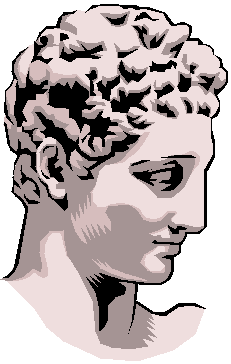
Oedipus, the King by Sophocles

The text and comments is available from Internet Classics: http://classics.mit.edu/Sophocles/oedipus.html
Theatre History. com has posted a synopsis and several articles on Sophocles and Greek theater: http://www.theatrehistory.com/ancient/oedipus001.html
The Oedipus Tyrannus represents the king of Thebes, in the full confidence of his own glory at the beginning of the play, but brought step by step to the consciousness of the horrible guilt in which he had unawares involved himself. "The wrath of heaven," says a well-known expositor, "has been pointed against the afflicted city, only that it might fall with concentrated force on the head of a single man; and he who is its object stands alone calm and secure; unconscious of his own misery he can afford pity for the unfortunate; to him all look for succor; and, as in the plentitude of wisdom and power, he undertakes to trace the evil, of which he is himself the sole author, to its secret source." The greatest dramatic ingenuity is shown in the manner in which Oedipus investigates the dreadful reality, and the hearer, though acquainted with the plot, shudders when Oedipus becomes at last conscious that he is about to hear the whole extent of his calamity. The powerful and self-confident king of the early part of the play becomes the blind and helpless outcast of the concluding scene, but his sins were involuntary, and his punishment and humiliation are his own act, so that the sufferer leaves the stage an object of the spectator's compassion, and a fit hero for the drama which renders poetic justice to this poor victim of fate.
A rich site on Oedipus (including a game) is from The Classics Pages: http://www.users.globalnet.co.uk/~loxias/myth.htm
The Literature Network has a searchable on-line version of the play, plus comments: http://www.online-literature.com/sophocles/oedipus/
Additional information is from the Greek Mythology Link: http://homepage.mac.com/cparada/GML/Oedipus.html
"Lord of Thebes, do not sow a furrow of children against the will of the
gods; for if you beget a son, that child will kill you, and all your house shall
wade through blood." [The Oracle of Delphi to Laius 1. Euripides,
Phoenician 20]
"O citizens of a famous country, look at me; I am Oedipus, who solved
the famous riddle, and was the greatest of men, I, who alone controlled
the murderous Sphinx's power, am now myself driven from the land in
dishonor and misery." [Oedipus. Euripides, Phoenician 1760]
Oedipus: I am the one who came into high songs of victory,
because I guessed the baffling riddle of the girl, half-maiden.
Antigone 2: ... Talk no more of past success. This misery
was in store for you all the while, to become an exile from
your country and die anywhere.
[Euripides, Phoenician 1730]
The classics department at Temple University has a study guide: http://www.temple.edu/classics/oedipus.html
A teaching guide is available from the Yale-New Haven Teachers Institute: http://www.yale.edu/ynhti/curriculum/units/1984/2/84.02.03.x.html
Another helpful guide is from the Program in Classical and Near Eastern Archaeology
University of Saskatchewan : http://www.usask.ca/antharch/cnea/CourseNotes/Oed.html
From The Fictional 100 is a bibliography: http://www.fictional100.com/oedipus.html